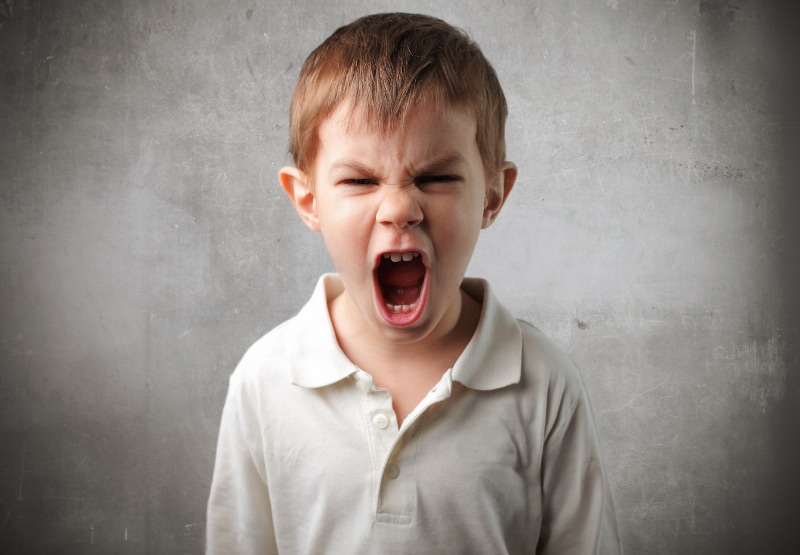How to Help Your Kids Control Their Anger
Even if the majority of parents are aware that occasionally becoming angry is just a natural part of life, a child's unpredictable and intense rage can nevertheless be extremely upsetting. As a result, a lot of parents have strong reactions to their kids' tantrums, trying everything to calm them down or disciplining them brutally to stop them from getting angry.
In actuality, neither of the aforementioned strategies is the best one because you can't stop your child from getting angry, and he will encounter angry events all of his life. Instead of letting their child's anger fuel harmful behaviors, parents should provide him with the tools he needs to understand and manage his anger in a healthy way.
Recognizing Your Child's Anger's Causes
When a child becomes extremely upset over seemingly insignificant things, such as a toy being misplaced, a sibling borrowing a toy, a favorite food being unavailable, etc., they are frequently responding to a mental script that implies the other person intended to harm them (e.g., that the parent who forgot to replace the peanut butter or the sibling who borrowed the toy was being purposefully careless). They respond with strong defensiveness because they take these incidents personally.
Some children struggle with conditions like Oppositional Defiant Disorder (ODD) or Intermittent Explosive Disorder (IED), which make them especially and repeatedly prone to viewing even the most normal situations as tantamount to attack. Of course, some of this is normal—after all, children are not the most objective thinkers by nature. For instance, an innocent request from a parent to put away his bag or take his plate from the table after eating could be interpreted by a child with ODD as an attempt to "control" him. When a child with IED goes through periods of sudden, strong anger, he may look about him for an explanation for his feelings, which could drive him to act out by yelling, screaming, or hurling objects over petty perceived offenses or seemingly "nothing." It is crucial to speak with a mental health expert if you notice your child exhibiting patterns of recurrent, unreasonable, and intense anger (also known as "anger overload"). They can offer a treatment plan and coping methods.
Handling Your Child's Fury
You can help your youngster learn to control his anger regardless of whether it stems from disordered thinking or from occasional "normal" outbursts. If you're a parent and your child is acting out, you ought to:
– Refrain from attempting to manipulate your child's feelings. It's impractical to think that anyone—young or old—can miraculously manage their emotions. Your child should only be asked to control his behavior. As a result, you ought to acknowledge and try to understand your child's anger before helping him find constructive outlets for it. Reiterate that what needs to be changed is his behavior, not his emotions or his character.
– Recognize the emotions that trigger you personally. It's crucial to consider the emotional responses your child's rage elicits in you. Do you typically feel anxious or furious back? What is the reason behind your reaction?
– Usually, the answer can be found in past experiences. For example, if you were raised by a parent who struggled with anger management, witnessing someone get upset may immediately make you want to act as the "peacemaker," even if it means giving in to your child's demands (and teaching him that anger is an effective tool to get what he wants). It's critical to stay conscious of these deeply entrenched habits so that, when you notice yourself starting to react, you may remove yourself from the situation, take a deep breath, and conduct an impartial analysis. Seek outside assistance if you're having trouble overcoming your triggers. Counseling can be a great way to understand the underlying causes of established behaviors and acquire coping mechanisms.
– Avoid making the problem worse. Giving your child a "time out" and letting him calm down before you address the matter at hand is usually the best course of action if he is really being unreasonable. When you and your child are both upset, it is better to send your child to his room while you calmly choose how best to discipline him for his behavior. If you try to bring up sensitive subjects or weigh out punishments, it is likely to end in an explosive argument.
– Your child should learn to identify his own rage. If your child is aware of the "warning signs" that typically precede an outburst—such as clenched teeth or stomach, stress, body heat, flushed cheeks, etc.—he will have a better chance of managing his behavior.
– Work through issues with your kid. Kids don't usually love getting furious; when they snap, they feel guilty, embarrassed, and uncontrollably irrational. When your child apologizes for losing his temper, attempt to utilize the incident as a teaching moment and address him compassionately: Ask him to consider what made him angry in the first place and the reasons behind his comments. Ask him to mention any other emotions he had during the outburst, such as frustration, shame, or fear, in addition to his anger. By doing this, you can uncover crucial hints regarding the underlying problems that are causing his anger; for instance, a low sense of self-worth can be causing him to be particularly vulnerable to feelings of humiliation and criticism.
– Seek out the contributing elements. Keeping track of your child's tantrums and searching for potential physical triggers is a smart idea because a child's physical condition can quickly impact his mood. Does your youngster tend to lose his temper more frequently after not eating or getting enough sleep? If your child's anger seems to have escalated sharply since entering puberty, you should take him to the doctor to rule out more serious disorders like depression and issues with the endocrine system.
Finally, parents should know that there are numerous counseling programs available to assist the parents of children with anger management issues, even if their child is not yet ready to meet with a mental health expert. Parents who attend to their own emotional needs are better able to maintain composure and groundedness, which in turn helps them teach their furious child the necessary coping mechanisms.




